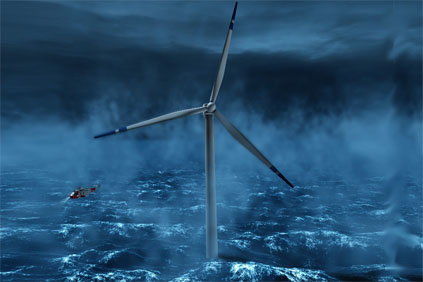At least one other site in Scottish waters is under consideration, along with one off the eastern seaboard of Maine, in the US. No US assessment has yet been announced.
The first Siemens-built 2.3MW turbine has been deployed in Norwegian waters by Statoil, but Norway will not be chosen for the group pilot comprising three to five turbines.
"We are very happy with having developed the technology in Norway," says Statoil spokesman Per Arne Solend.
"However, as we are working on further commercialising the technology, we have chosen to look at markets where we see a potential for later large-scale developments using the Hywind technology. That is why we are currently focusing on markets such as Maine and Scotland, where the government has indicated strong support for offshore wind."
Offshore wind is not considered a high political priority in Norway where the country already has plentiful low-carbon hydro-electric generation.
Deep water
The Hywind floating turbine is suitable for operation in deeper water - the first machine in Norway has been installed in waters 220 metres deep. The floating structure consists of a steel cylinder filled with ballast, extending 100 metres below the surface. It is then attached to the sea bed by a three-point mooring spread.
The first Scotland assessment by Aberdeen consultancy Xodus Group, now underway, is looking at technical and environmental issues such as sea bed composition, possible impact on fisheries and sea mammals, and local planning and regulatory issues.
Xodus says the site being examined in the North Sea is around 20 kilometres offshore. James Ingram, group head of low carbon, says: "Our team will be carrying out a thorough assessment in close co-operation with Statoil. One of the main advantages of the floating structure is that the turbines do not need to be piled into the seabed, so reducing the environmental impact."
The assessment has been welcomed by Scotland's First Minister Alex Salmond, who says it is another example of "Scotland's waters attracting a range of clean-energy technology developments".
Solend says that a final decision on the pilot site would be made when the assessments were completed, although "one site could be chosen, both or neither".

.png)


.png)










